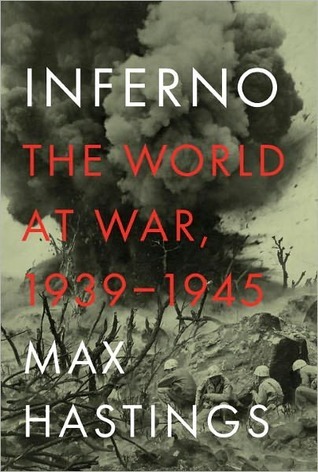More on this book
Community
Kindle Notes & Highlights
The Russians concentrated 400 guns a mile for their preliminary bombardment, along a front of 350 miles. They had total air superiority, thanks in large measure to the Western Allies’ destruction of the Luftwaffe over Germany. When
Russian attacks emphasised massed artillery bombardment and sacrificial tank and infantry advances, often led by “staff battalions”—penal units of political and military prisoners offered the possibility of reprieve in return for accepting the likelihood of extinction. Some 442,700 men served in them, and most died.
Even in the years of victory, 1943 to 1945, the Red Army’s assault units accepted losses of around 25 percent in each action, a casualty rate the Anglo-American forces would never have accepted as a constant. Of 403,272 Russian soldiers who completed tank training in the course of the war, 310,000 died.
The Red Army advanced more swiftly than Eisenhower’s forces in 1944–45, partly because its soldiers lived off the land and required much lower scales of supply; they were the least cosseted of the war. Among the long list of comforts and facilities routinely provided to Western Allied troops but denied their Russian counterparts were razors, delousing chambers, pencils, ink, paper, knives, torches, candles, games. Vodka was the only Red Army–issue stimulant to morale, and some sections pooled their rations, so that men could take turns to drink themselves into stupefaction.
The foremost Russian advantages in waging war were a willingness to accept almost unlimited casualties, together with men’s knowledge of the draconian penalties awaiting those who flinched or failed. Russian units confronted with German resistance were never permitted to adopt the familiar Anglo-American expedient of taking cover and calling for artillery and air support. They were expected to drive on, heedless of obstacles or minefields, and to pay the price: there were always more men.
Hitler refused to evacuate the Baltic Courland Peninsula in Latvia, though his generals pleaded that the forces holding the perimeter there might contribute importantly to the defence of Germany. Twenty-one divisions—149,000 men and 42 generals—remained beleaguered in Courland until May 1945.
The Soviets’ looming triumph was delayed only by the logistical difficulties of fuelling and supplying huge forces in regions of few roads and wrecked railways; their armies halted to rearm and regroup. Hitler’s generals knew that when the Russians chose to advance again, the Wehrmacht could merely delay the inevitable.
American submarines achieved the strangulation of Japanese commerce which Germany’s U-boats had failed to impose on Britain. Seldom in history has such a small force—16,000 men, 1.6 percent of the sea service’s strength, with never more than 50 boats deployed—gained such decisive results. American submarines were responsible for 55 percent of all Japan’s wartime shipping losses, 1,300 vessels totalling over 6 million tons; their destructive achievement climaxed in October 1944, when they sank 322,265 tons of shipping. Thereafter, Japanese losses diminished only because they had little cargo
...more
While the Germans lost 781 U-boats and Japan 128, the Imperial Japanese Navy sank only 41 U.S. submarines; 6 more foundered in accidents.
Both sides deployed formidable forces, but the Americans outnumbered the Japanese by around two to one at sea and in the air, with 956 aircraft to 473, 15 carriers to 9—four times the U.S. strength at Midway.
The Filipino people whom MacArthur professed to love paid the price for his egomania in lost lives—perhaps half a million, including those who perished from famine and disease—and wrecked homes. It was as great a misfortune for them as for the Allied war effort that neither President Roosevelt nor the U.S. chiefs of staff could contain MacArthur’s ambitions within a smaller compass of folly. In 1944, America’s advance to victory over Japan was inexorable, but the misjudgements of the Southwest Pacific supreme commander disfigured its achievement.


